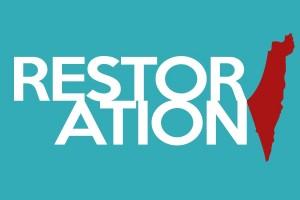By Jewish Virtual Library
The very world rests on the breath of a child in the schoolhouse. (Babylonian Talmud: Shabbat, 119b)
Education in Israel is a precious legacy. Following the tradition of past generations, education continues to be a fundamental value in Israel’s society and is recognized as the key to its future. The educational system aims to prepare children to become responsible members of a democratic, pluralistic society in which people from different ethnic, religious, cultural and political backgrounds coexist. It is based on Jewish values, love of the land and the principles of liberty and tolerance. It seeks to impart a high level of knowledge, with an emphasis on scientific and technological skills essential for the country’s continued development.
Challenges
When the State of Israel was founded (1948), a fully functioning education system already existed, developed and maintained by the prestate Jewish community, with Hebrew, which had been revived for daily speech at the end of the 19th century, the main language of instruction.
However, since shortly after the establishment of the state, the education system has faced the enormous challenge of integrating large numbers of immigrant children from more than 70 countries some coming with their parents, others alone, thereby fulfilling Israel’s raison d’etre as the historic homeland of the Jewish people. The mass immigration of the 1950s, mainly from postwar Europe and Arab countries, was succeeded in the 1960s by a large influx of Jews from North Africa.
In the 1970s, the first sizable immigration of Soviet Jews arrived, followed intermittently by smaller groups. Since the dissolution of the Soviet Union in 1989, well over half a million Russian Jews have made their home in Israel, with tens of thousands more still arriving each year. In two mass movements, in 1984 and 1991, almost the entire Jewish community of Ethiopia was brought to the country. Over the years, many Jews from the Americas and other parts of the free world have also settled in Israel.
In addition to meeting urgent demands for more classrooms and teachers, special tools and methods have had to be developed to help absorb youngsters from many cultural backgrounds into the school population. Programs designed specifically to meet the needs of the newcomers include preparation of appropriate curricular aids and short-term classes to introduce immigrant pupils to subjects not learned in their countries of origin such as the Hebrew language and Jewish history. Special courses were initiated to train teachers to deal with immigrant youngsters, and retraining courses for immigrant teachers have facilitated their employment in the education system.
At the same time, the Ministry of Education, Culture and Sport, in cooperation with schools of education at the country’s universities, is involved in an ongoing process of bringing educational standards in line with modern pedagogic practices such as mandating gender equality, upgrading teacher status, broadening humanistic curricula and promoting scientific and technological studies. A key aspect of its policy is to provide equal opportunities in education for all children and to increase the number of pupils passing matriculation examinations.
Educational Television (ETV), a unit of the Ministry of Education, Culture and Sport, produces and broadcasts scholastic programs for use in school classrooms and educational/cultural programs for the entire population. In addition, ETV collaborates with education professionals at universities and teachers’ seminars in developing new teaching methods. Dedicated to providing ‘lifetime learning,’ ETV gears its productions to people of all ages through enrichment programs for preschoolers, entertainment programs for youth, educational courses for adults and news broadcasts for all. ETV is aired on two channels, six days a week, for a total of some ten hours daily.
© Israel My Beloved


